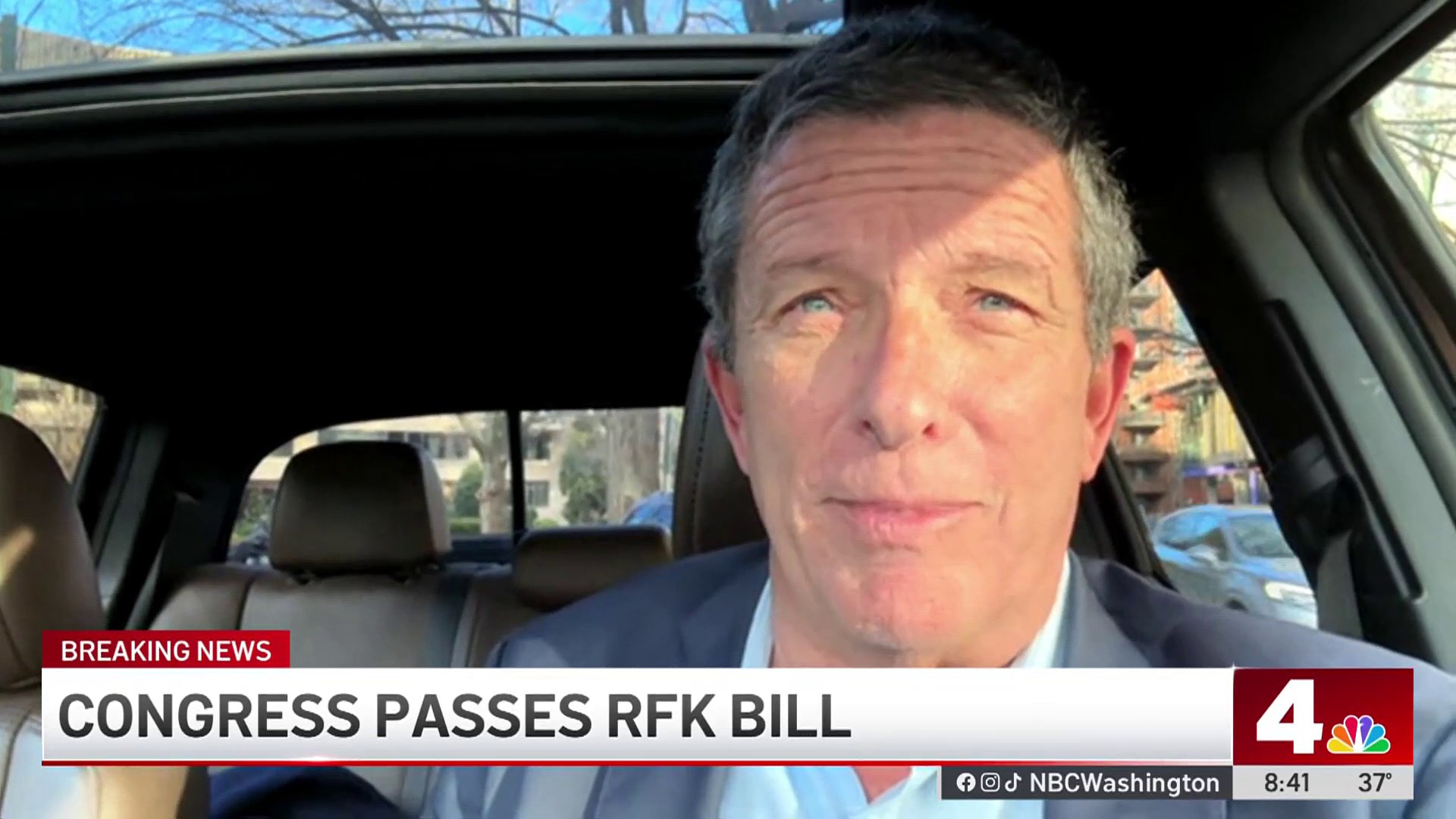Nearly 3,000 men convicted of felonies in Washington, D.C., are under a prison lockdown order, and nearly 100 are serving their time in COVID-19 hot spots in the federal prison system, according to a review of D.C. and federal records by the News4 I-Team.
Without its own state prison, the District sends its citizens convicted of felonies to serve time in the federal Bureau of Prisons and its dozens of prison facilities nationwide. The federal prison system is under unique stress responding to the coronavirus epidemic and enhancing its security amid the national unrest over the death of George Floyd.
Relatives and representatives of the D.C. men and women in federal custody said they fear the risk of the virus spreading in U.S. penitentiaries is grave and exacerbated by a sweeping lockdown implemented last week after rioting in multiple U.S. cities.
The I-Team completed a data analysis of COVID-19 case reports from the federal Bureau of Prisons records and D.C. inmate location reports from the District’s Corrections Information Council. The analysis showed 36 D.C. felons are being held in the federal prison complex with the worst COVID-19 outbreak, the Butner federal prison complex in North Carolina. Butner has handled nearly 720 COVID-19 cases, most of them still active, and has suffered nine inmate deaths and one staff death from the virus.
“It’s a big stress. They can’t control the virus,” said Jolie, whose husband is serving a sentence in Butner for a D.C. firearms conviction. She declined to give her last name to prevent any retribution against her husband.
Another Butner inmate, who also requested anonymity, said inmates are unable to practice social distancing in the prison complex and are fearful about the rapid increase in cases among inmates and staff.
“Tempers are high,” the inmate said. “None of us have been outside in weeks or moved at all.”
News
News updates for Washington, D.C., Maryland and Virginia
The I-Team’s review of federal and DC records shows another 72 D.C. felons are serving sentences at three other federal prison complexes that have suffered a large number of COVID-19 infections in Atlanta; Danbury, Connecticut; and Oakdale, Louisiana.
The Bureau of Prisons declined to comment on how many District of Columbia felons are among those who have tested positive. Attorneys representing D.C. inmates said their clients suffer uniquely during any health crisis, because they are serving their sentences hundreds of miles from their families and homes.
“We can’t go see them or keep in contact at all,” Jolie said. “They’re only allowed so many visits a month, and there are no visits now during the pandemic.”
The risk from the virus is heightened because of a nationwide prison lockdown, ordered last week during civic unrest nationwide, according to attorneys representing inmates. The Bureau of Prisons ordered restrictions on inmate movement inside prison complexes “out of an abundance” of caution due to the riots triggered by the death of George Floyd in Minneapolis.
Jonathan Smith, an attorney with the Washington Lawyers’ Committee for Civil Rights and Urban Affairs, said lockdowns in federal prison complexes could increase exposure for some inmates.
“There are dorm-style housing facilities,” Smith said. “You have 30, 60, 90 or 100 people and you are going to be with them, sleeping just a few feet apart. There is little rec space. It’s only going to spread the virus further.”
The Bureau of Prisons declined a request of an interview with the I-Team. In a written statement, the agency said, “The Bureau of Prisons (BOP) is carefully monitoring the spread of the COVID-19 virus. As with any type of emergency situation, we carefully assess how to best ensure the safety of staff, inmates and the public.”
The agency also said it is taking steps to help connect D.C. inmates with families back in the District. In its statement, the agency said, “We realize that suspending social visiting has an impact on inmates and their loved ones, but our primary purpose in doing so is to help keep them and the community safe. In order to compensate for the absence of in-person visits, we increased monthly telephone minutes for all inmates from 300 to 500 minutes in recognition of how important it is for families to stay in touch during this time.”
Reported by Scott MacFarlane, produced by Rick Yarborough, and shot and edited by Steve Jones.



